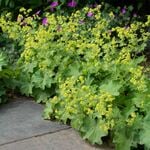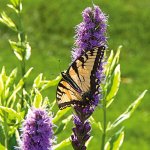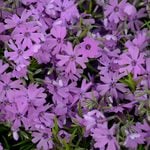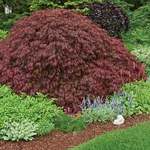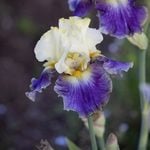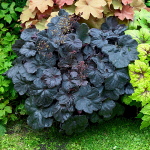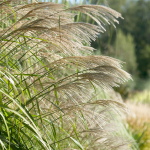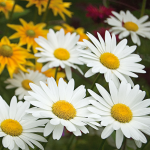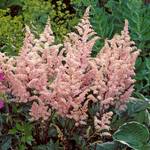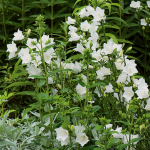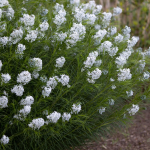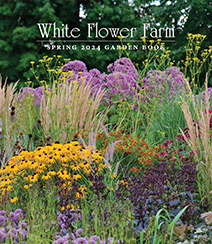Product Details
Geranium sanguineum striatum is a low grower whose pink flowers abound from late May through June, with rebloom continuing until early August. A superb edging or rock garden plant in average to dry soils.
This is the true Geranium, not to be confused with the annual Pelargonium one sees everywhere in summer. Perennial Geraniums are lovely plants that grow in full sun or partial shade (required in the South and in the warmer areas of western Zones 9 and 10) and need soils with good drainage.
Shipping
HOW PLANTS ARE SHIPPED
The size of the plants we ship has been selected to reduce the shock of transplanting. For some, this means a large, bareroot crown. Others cannot travel bareroot or transplant best if grown in containers. We ship these perennials and annuals in 1 pint pots, except as noted. We must point out that many perennials will not bloom the first year after planting, but will the following year, amply rewarding your patience. We ship bulbs as dormant, bare bulbs, sometimes with some wood shavings or moss. Shrubs, Roses, vines, and other woody plants may be shipped bareroot or in pots. The size of the pot is noted in the quick facts for each item.
WHEN WE SHIP
We ship our bulbs and plants at the right time for planting in your area, except as noted, with orders dispatched on a first-come, first-served basis by climate zone. We also ship a wide range of containers and planters, tools, supplies, fertilizers, garden wear, garden decor items, as well as indoor decorations like wreaths and dried bouquets when available. Estimated dates for shipping are indicated in the green Shipping Details box for each item. Please supply a street address for delivery. Kindly contact us with two weeks notice, if you'll be away at the expected time of delivery.
OUR GUARANTEE
We guarantee to ship plants that are in prime condition for growing. If your order is damaged or fails to meet your expectations, we will cheerfully replace or refund it. Please contact our Customer Service Department at 1-800-503-9624 or email us at [email protected]. Please include your order number or customer number when contacting us.
Reviews
Average Customer Rating:
 (1 Review)
Write a Review
(1 Review)
Write a Review
Sort by:
Long lived front of border perennial 
A viewer from Albany NY Zone 5b
Growing guide
Latin Name Pronunciation: jer-ay'nee-um
Geranium is a variable genus of hardy perennials that offers up profusely blooming plants for many situations. The lobed foliage can be as interesting as the flowers, which come in vibrant as well as more subdued shades of true blue, lavender, pinks and white. These plants bear little resemblance to the tender container plants known as Scented Geraniums, Zonal Geraniums, and Martha Washington Geraniums (these belong to the same family, but a different genus, Pelargonium).
Light/Watering: Light shade to full sun in the North and part shade in the South will allow these plants to reach peak performance. Most adapt well to short periods of dry conditions, and all respond to regular watering. Geranium sanguineum and its varieties tolerate drought, especially in cooler climates.
Fertilizer/Soil and pH: Geraniums thrive in average, well-drained soils that are slightly acid to neutral and will benefit from a light application of balanced, granular fertilizer in early spring. Short, dry periods are tolerated by most.
Pests/Diseases: No serious pests or diseases occur in this hardy group.
Companions: Good complements include Catmint (Nepeta), Lilies, Gas Plant (Dictamnus), Delphinium, and Shasta Daisies (Leucanthemum x superba).
Reflowering: With the exception of Bigroot Geranium (G. macrorrhizum) and Bloody Cranesbill (G. sanguineum) varieties, Geraniums have a tendency to sprawl after bloom. Cut plants back hard, to 2-3 inches above soil level, after the first wave of bloom. They will respond with a fresh crop of foliage that looks attractive through the season, and possible sporadic reblooming depending on variety.
Dividing/Transplanting: Cranesbill rarely needs dividing; it is possible with some plants to separate out divisions and replant in spring or early fall. Transplant with care in early spring.
End-of-Season Care: Cut back in autumn after several killing frosts, if desired.
Calendar of Care -- Geranium
Early Spring: Apply a light application of balanced or slow-release fertilizer or side-dress with compost and organic amendments when new growth appears. Supplement nitrogen during periods of prolonged rain to counter natural leaching. Water well if it is unseasonably dry as most prefer an evenly moist soil. Transplant now, if needed, and in some varieties, small pieces with roots may be removed from the edges of the plant for propagation.
Mid-Spring: Taller or sprawling varieties benefit by support with brushy twigs or interwoven, slender stakes.
Late Spring: Water if extended dry periods occur.
Summer: Groom plants by removing yellow or dead leaves. If plants are overtaking their allotted space, cut back to three inches; the new foliage will look lovely for the rest of the season.
Fall: Cut foliage back to soil level. After the ground is frozen, mulch to protect plants from heaving out of the soil in winter.

